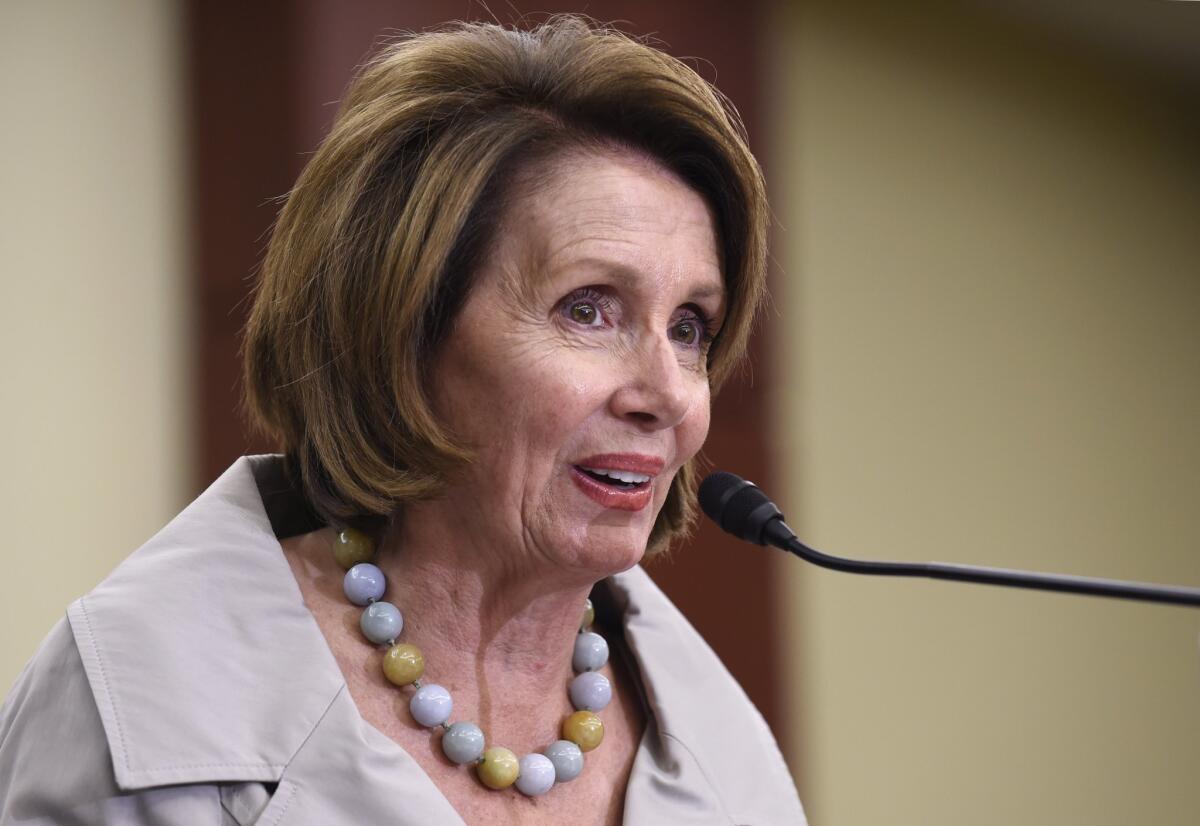House OKs $15 minimum wage, setting marker for 2020 campaign

- Share via
WASHINGTON — House Democrats approved legislation Thursday to raise the federal minimum wage for the first time in a decade, to $15 an hour, transforming an issue that once splintered the party into a benchmark for the 2020 election.
Even though the bill has little chance of passing the Republican-led Senate, or being signed into law by President Trump, the outcome pushes the phased-in rate to the forefront as the new standard, one already in place at some leading U.S. corporations.
While the increase would boost pay for some 30 million low-wage workers, intended as one answer to income inequality, passage was assured only after centrist Democrats won adjustments to the bill. Reluctant to embrace the party’s left flank, they pushed for changes, including a slower six-year phase-in of the wage. It’s a reminder of moderates’ influence on policy, but also the limits.
“We’re testing candidates, from the presidential all the way down to the school board,” said Mary Kay Henry, president of the Service Employees International Union, whose members cheered passage from the House gallery. To address stark income inequality, she said, “they have to raise wages.”
A hike in the $7.25 hourly wage has been a top Democratic campaign promise, and what Majority Leader Steny Hoyer of Maryland called Thursday the “right thing to do.”
“America’s workers deserve a raise,” said Speaker Nancy Pelosi at a new conference with labor leaders and employees ahead of voting. Lifting a young girl into her arms, Pelosi said, “This is what it’s all about.... It’s about family.”
The last increase in the federal minimum occurred 10 years ago, the longest stretch without an adjustment since the wage floor was first enacted during the 1930s. The wage protection covers millions of low-wage workers in all types of jobs.
Under the House bill, for the first time, tipped workers would be required to be paid the same as others earning the minimum, boosting their pay to $15 an hour too. It’s now $2.13, in what labor scholars call a jarring remnant from the legacy of slavery, when newly freed workers received only tips.
Republicans in the House balked at the wage hike, which would be the first since Democrats last controlled the majority. Just three Republicans joined most Democrats in passage, on a 231-199 vote.
Republicans have long maintained that states and municipalities are already able to raise the wage beyond the federal minimum, and many have done so. They warn higher wages will cost jobs, especially among smaller business owners.
While opponents have long said higher minimum wages lead to job losses, economists say new studies are casting doubt on those long-held theories.
A report from the nonpartisan Congressional Budget Office sent mixed messages. It said more than 30 million workers would see bigger paychecks with a higher wage, lifting more than 1 million workers from poverty. It also said between 1 million and 3 million jobs could be lost.
Sara Jayaraman, president of the Restaurant Opportunities Center United, a group founded with displaced workers from the World Trade Center after the Sept. 11, 2001 terror attacks, said boosting the tipped wages in particular, for waiters and other tipped workers, was a milestone.
It’s “historic moment and a historic bill,” she said. “Once you start raising workers’ wages it’s hard to go back.”
More to Read
Sign up for Essential California
The most important California stories and recommendations in your inbox every morning.
You may occasionally receive promotional content from the Los Angeles Times.












